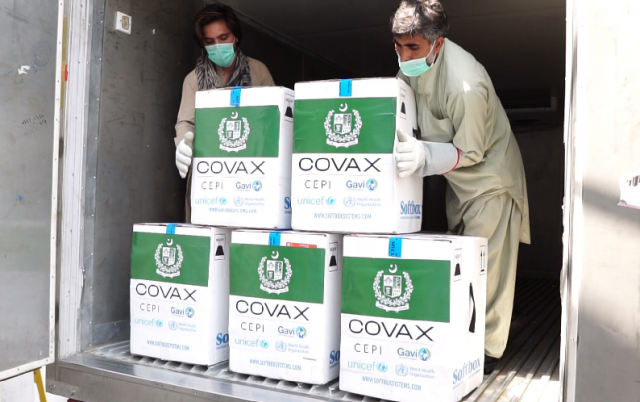Lingering apprehensions : Dose mismatches adding to public vaccine concerns
Citing lack of evidence, experts suggest using same jab for both doses

On one end, the government has tried leaving no stone unturned in its fight against the pandemic, which has also meant reshaping the public’s opinion on Covid-19 vaccines. On the other, it seems to have dropped the hammer on its own foot, with reports of mismatched vaccines being a source of growing concern among the general public.
Owing to such apprehensions, many in the province, who had already received their first dose of the anti super-spreader, now appear reluctant to get the second jab.
Where the Chinese-supplied vaccines like SinoPharm and SinoVac were received well by the local masses, the public’s reservations in the regard can be traced back to the recent inflow of AstraZeneca— A British-made vaccine being administered as a second dose in places where the initially administered Chinese vaccines are in shortage.
The mass distrust in AstraZeneca majorly stems from fears that the shot may have caused some recipients in Europe, where it was first introduced, to develop blood clots. However, there’s still no solid evidence available to back up the claims and the World Health Organisation (WHO) has repeatedly expressed confidence in its safety.
Pakistan receives first batch of Pfizer vaccine under COVAX
In addition to popular opinion, health experts too believe that there should have been a clear policy from the government, informing the general public to use similar vaccines for the second dose. “Look, it took a lot of work, but the public had finally started trusting the initially administered vaccines. But I fear the public’s confidence in the vaccines may weaken with the introduction of a mysterious, new drug,” a senior health official associated with the government’s inoculation drive told on conditions of anonymity.
Speaking about the method’s safety however, the expert opined that he does not personally think that there should be any risks involved in administering a second dose of AstraZeneca, but in absence of research still advised that both doses should be the same.
For Muhammad Irshad Khan, a resident of Hayatabad who was queued outside a local immunisation centre for his second anti-coronavirus shot, the news that the centre had freshly run out of Sinopharm jabs had come as a discouraging realisation. “I’m here after 21 days for my second dose, as I was told by the health facility officers. But it seems the stock [for Sinopharm] has been all used up here. My children had told me to stick to Sinopharm and I much rather wait for the new stock to arrive than take a different vaccine,” said the senior citizen.
According to Dr Iftikharuddin, a senior epidemiologist, delaying a dose does not have a harmful effect as such. But in absence of scientific research, he too advised the public to use similar vaccines for both their doses. “If people can wait in hope of receiving a matching second dose, they should. For Sinopharm vaccines for instance, 21-days is the minimum gap period, not the maximum,” he informed.
Local health experts have not had much to say about mixing various vaccine doses, a news story published by CBC spoke of a research in the regard being conducted.
Published in The Express Tribune, May 31st, 2021.



















COMMENTS
Comments are moderated and generally will be posted if they are on-topic and not abusive.
For more information, please see our Comments FAQ